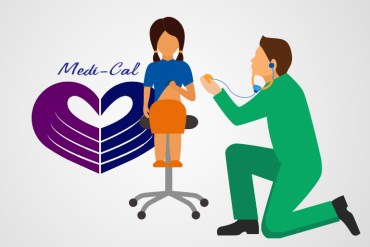A joint legislative committee Wednesday will hear pro and con arguments on a ballot measure intended to protect an important source of funding for low-income Californians.
The measure, known as the Medi-Cal Funding and Accountability Act, would override the scheduled expiration of a fund used by the state to bring in matching dollars from the federal government for Medi-Cal, California’s version of the Medicaid health care program for low-income people. The fund — financed by hospitals — would become permanent.
The measure, to be on the November ballot, would also make it more difficult for authorities to divert the money — as they have in the past — from its intended purpose of paying for Medi-Cal and children’s health coverage.
For a state to get federal funds from Medicaid, it must contribute an equal amount of its own money. In 2009, California hospitals agreed to front the state nearly $3 billion annually for that purpose. Hospitals eventually get double their money back in the form of reimbursement for Medi-Cal services.
Currently, the hospital fee program must be renewed every two years. The current two-year period is set to expire at the end of 2016.
The fees are charged only to private sector hospitals and are determined by the number of inpatient days. The amount paid varies by payer: Higher fees are charged on inpatient days covered by Medi-Cal than by private insurance, for example. The fee ranges from $145 for each inpatient day covered by a non-Medi-Cal payer to $618 per day when patients are enrolled in Medi-Cal, according to a report by the Legislative Analysts Office.
 The lower fee is imposed on inpatient days associated with non-Medi-Cal patients in order to mitigate the financial burden on hospitals for which those patients represent a small share of overall inpatient business, according to the California Health Care Foundation.
The lower fee is imposed on inpatient days associated with non-Medi-Cal patients in order to mitigate the financial burden on hospitals for which those patients represent a small share of overall inpatient business, according to the California Health Care Foundation.
Under the current agreement, the state is free to divert some of the money from the hospital fee into its general fund. The initiative would put up a road block to such actions by requiring a two-thirds “super” majority in each house of the state legislature in order use the money for any purpose other than the stipulated ones.
Kevin Riggs, spokesman for the campaign in support of the measure, noted that about five years ago, shortly after the end of the Great Recession, legislators took half of a billion dollars from the fund to ease pressure on the state’s budget. It was ironic, Riggs said, because in times of economic crisis, people need Medi-Cal services the most.
The California Medical Association said the measure is critical for Medi-Cal patients, who are “too often handed an insurance card with an empty promise.”
“It’s why we support the Medi-Cal Funding and Accountability Act: to ensure funds designated for Medi-Cal, an abysmally underfunded insurance program, are helping patients get the health care they need,” the association said in a statement.
If voters approve the measure, the state would continue to save up to $1 billion annually, according to the fiscal impact report by the Legislative Analyst’s Office.
Riggs explained that as part of the fee agreement, hospitals pay a separate $1 billion to the state for children’s health programs. That is $1 billion saved by the state’s general fund, which would otherwise pay for those programs.
Unlike several other measures on the November ballot, this one has not been particularly controversial. The initiative, led by the California Hospital Association, qualified for the November ballot in 2014 and has quietly gathered a large backing from health care, community and labor groups.
The only group formally opposing it is the Service Employees International Union-United Healthcare Workers West (SEIU-UHW).
“This is just a money grab by the hospital industry that puts at risk billions of dollars in federal funding and does little or nothing to improve the quality of patient care in California,” Dave Regan, president of SEIU-UHW, said in an email, without further explanation.
The union has raised close to $6 million to fight the initiative, according to the secretary of state’s website. Supporters of the measure have raised almost 10 times that amount.
The labor union is also sponsoring a bill that would require hospitals to file annual reports on the compensation of executives who earn $250,000 or more.
Riggs said he is not surprised SEIU-UHW is opposing the ballot initiative on hospital fees. He noted that the union has longstanding disagreements with the Hospital Association.

